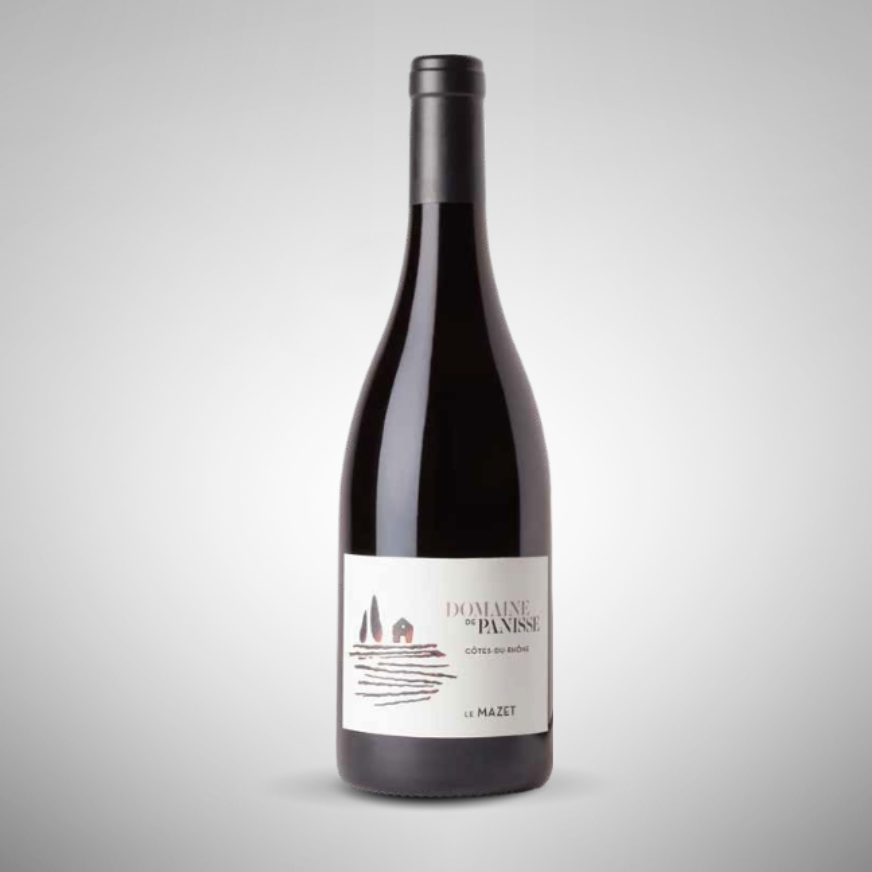 THE STORY
THE STORY
Domaine de Panisse is a unique Provençal farmhouse in the heart of the Châteauneuf-du-Pape appellation.
The 15th-century building is surrounded by 6.5 hectares of Châteauneuf-du-Pape vines which form an amphitheater around the estate. A good share of the vineyard is planted in old and high quality vines, including some planted in 1901.
In April 2020, the Vacheron family bought Domaine de Panisse and gave new impetus to the estate.
Located just 2 kilometers north of Clos du Caillou, on one of the appellation’s finest terroirs, Domaine de Panisse represents a great opportunity for the new generation: Marilou Vacheron, Axel Vacheron and Antoine Robert.
Supported by their elders Sylvie Vacheron and Bruno Gaspard, the three young people set themselves a new challenge creating wines in their own image, expressing the best of this new terroir, and writing a new page to the story.
 THE TERROIR
THE TERROIR
Domaine de Panisse benefits from an exceptional terroir of different types: a real guarantee of complexity.
There are terroirs of finesse (sandy and sandy-loam soils) and terroirs of power (more clayey soils with pebbles).
The vineyards here seem highly resistant to drought, with few signs of water stress in sunny years, making for an excellent terroir for the future, given the context of global warming.
Domaine de Panisse is planted with old vines of the 4 main grape varieties of the Châteauneuf-du-Pape appellation:
– Old Grenaches on sandy soils, but also on clay, bringing fruitiness and aromatic finesse to the wine,
– Syrahs on poor sandy soils, giving the wine a complex, spicy fruitiness,
– Mourvèdres on richer clay soils, providing structure and depth,
– old Cinsaults on sandy soils, adding a touch of freshness.
 THE SPIRIT
THE SPIRIT
As soon as the Vacheron family took over the vineyard, they evidently decided to convert the entire estate to organic and biodynamic farming.
Also, they made it a point of honour to preserve this magical place, made up of vines as well as lavender, cypress and olive trees, and to maintain a rich life in the soils.
Hand-harvested in crates, the grapes are transported to the Clos du Caillou winery for vinification.
– Le Mazet, Côtes-du-Rhône is vinified with indigenous yeasts in concrete tanks, with gentle extraction and maceration for around 35 days.
– Le Mas Châteauneuf-du-Pape is also vinified with indigenous yeasts, in truncated wooden vats, with maceration lasting around 40 days.
Great precise and meticulous care is taken during vinification.
Both cuvées are aged in demi-muids and oak barrels for 15 months in the Clos du Caillou underground cellar.


 FOUNDED IN :
FOUNDED IN :
2020
OWNERS :
Marilou Vacheron, Axel Vacheron, Antoine Robert
SURFACE AREA :
12 hectares (6,5ha en Châteauneuf-du-Pape et 5,5ha en Côtes du Rhône)
APPELLATIONS :
Côtes-du-Rhône et Châteauneuf-du-Pape
GRAPE VARIETIES :
Grenache Noir, Mourvèdre, Syrah, Cinsault
VITICULTURE :
Agriculture biologique et biodynamique




